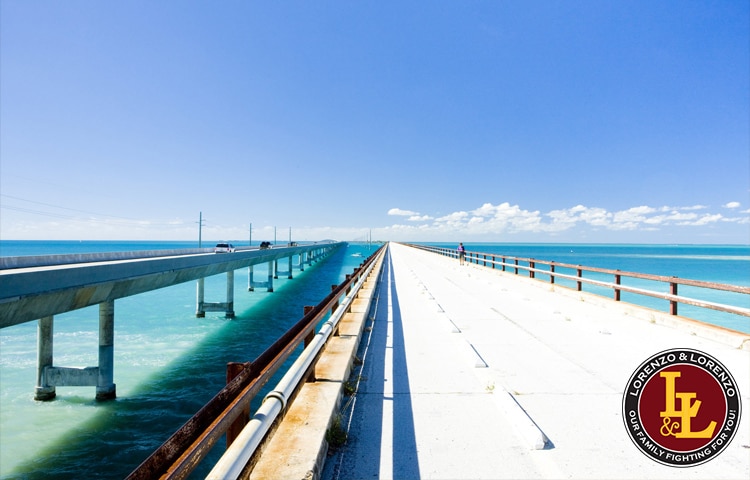Florida has long been home to a large number of immigrants, due in part to its proximity to several Caribbean nations. In fact, according to the American Immigration Council, 1 in 5 residents in the state is an immigrant, making up more than a fourth of Florida’s labor force.
As such an integral part of Florida’s diverse communities, immigrants contribute greatly to the local economy and culture. And yet, unauthorized immigrants in Florida (and many other states) are unable to obtain a driver’s license. This lack of legal driving privilege makes it more difficult for immigrants to obtain gainful employment and increases the rate of car accidents involving unlicensed and uninsured drivers in Florida.
Only a handful of states (and the District of Columbia) now offer driving privileges to unauthorized immigrants. As of May 2020, these states include:
- California
- Colorado
- Connecticut
- Delaware
- Hawaii
- Illinois
- Maryland
- Nevada
- New Jersey
- New Mexico
- New York
- Oregon
- Utah
- Vermont
- Washington
Should Florida be added to this list?
Here at Tampa personal injury law firm of Lorenzo & Lorenzo, we care about this issue deeply because it directly impacts our friends, neighbors and clients. But instead of giving our perspective, we decided to pose this question to future business leaders, politicians and community activists by sponsoring a privately funded scholarship essay contest.
While we received a number of thoughtful submissions, we had the difficult task of choosing just 1 winner of our $1,000 scholarship prize. We’re excited to announce that we’ve selected Tonia Kembel as our winner. Tonia is a single mom and Northwest University student who is studying to become a nurse.
Here is Tonia’s winning essay:
Should undocumented immigrants be allowed to get driver’s licenses? Why or why not?
Driving is a privilege. There are classes to guide us, road rules to bring order to the mass of vehicles on the byways, and laws to protect us. Being born in America affords us the opportunity to apply for a driver’s license. Does that mean we have the capacity to take on the open road? The answer is yes and no. One is not automatically a “driver” by right of origin of birth. However being born in America has a huge advantage when it comes to being familiar with things like road signs, traffic lights, and normal driving behaviors through observation or participation.
So what about those who were not born here? How many of them are driving without the benefit of exposure, education, and a license? Here’s some food for thought. About 12 million undocumented immigrants are currently residing in the United States (nilc.org). According to the AAA Foundation for Traffic Safety these drivers are “among the worst drivers on the road” (nilc.org). Evidence also indicates that this populace is “almost five times more likely to be in a fatal crash than are validly licensed drivers” (nilc.org). Not to mention that hit and run incidents and uninsured drivers result in an average of four billion in losses annually, fueling higher premiums for the insured drivers. Further, it is well worth mentioning yet another consequence of having virtually no demonstrable form of identification in the US. Undocumented immigrants are more likely than not to cause issues for law enforcement by either running from it or towards it for refuge.
Our system contains policies that protect its people. Let this be one of them. Allowing an illegal immigrant to earn a driver license, in my estimation, is just common sense. Education and training are key. The requirements should be the same as for the sixteen year old next door. Safety is paramount and having the skills, knowledge, and a license for driving has to be non-negotiable. I’m a single mom with four children, two of whom are new drivers. It is my express hope that the other drivers sharing the roads with them are equipped with the proper education and experience.
Understandably, there are reservations. Will this give them the same rights as American citizens? Voting privileges? Will it cloak the fact that they are not US citizens? Does this exacerbate immigration issues? So, to quell any thoughts of a driver’s license being the ultimate key to “all access” in the United States, I say to you, if we can indicate being an organ donor we can certainly indicate some restrictions for illegal immigrants as well as their citizenship status. My contention is this, all individuals operating a motor vehicle of any form here in America need to be educated accordingly in all that encompasses being a legally licensed driver. Tested knowledge of the rules of the road and of safety before getting behind the wheel is miles better than “winging it.”
About the winner
Some people think they know what career they want to pursue from the start. However, more often than not, that path branches off and the original end goal becomes blurry. For Tonia, her heart always led her to be a helper, a healer, and a difference-maker.
Tonia is earnestly pursuing her degree in nursing from Northwest University. She is a single mom and the first person in her immediate family to attend college. More than anything, Tonia wants to share her compassion and skills with others. She believes nursing is noble, enduring, and worthy pursuit.
For 2 decades, Tonia witnessed her mom deteriorate in the grips of Parkinson’s disease. She went to countless neurology checkups and watched as the nurses cared for her mother (and other patients) with compassion and selflessness. The dedicated and unwavering heart of the nurses she encountered spoke to her, and she aspires to be just like them.
Congrats Tonia! And we’d like to thank everyone else who participated in our scholarship essay contest. The competition was fierce, and we encourage you to keep working hard in school.
If you missed the deadline for this contest or would like to apply for future scholarship opportunities, please visit our Scholarship page to review the prompt question, eligibility criteria, deadline and application instructions.








